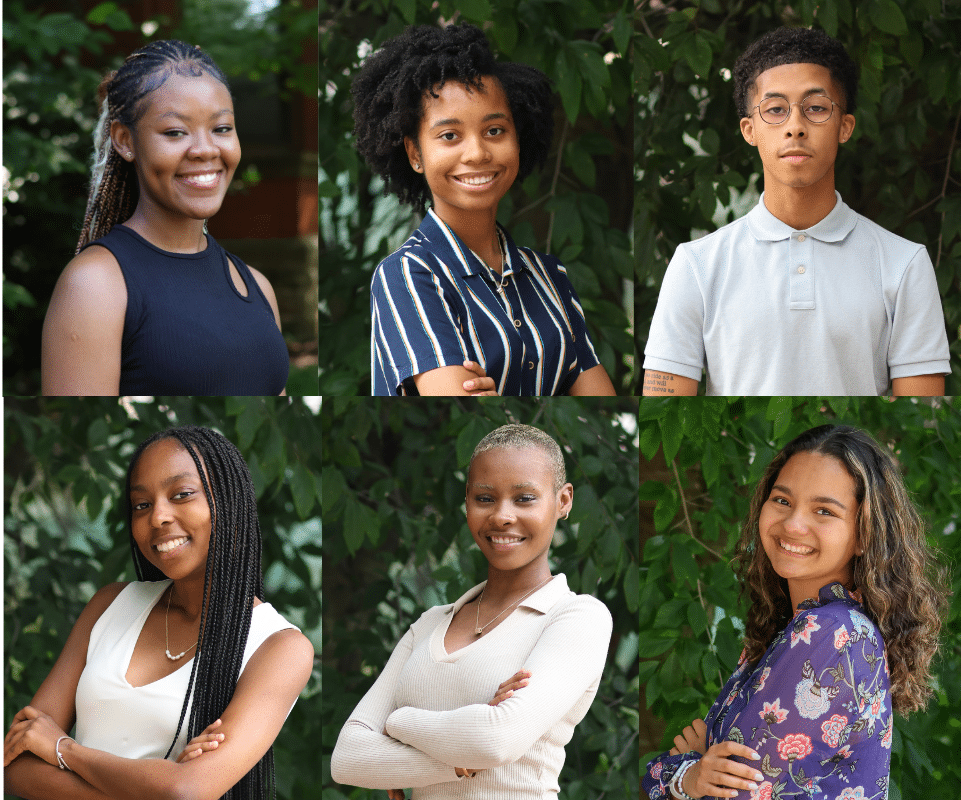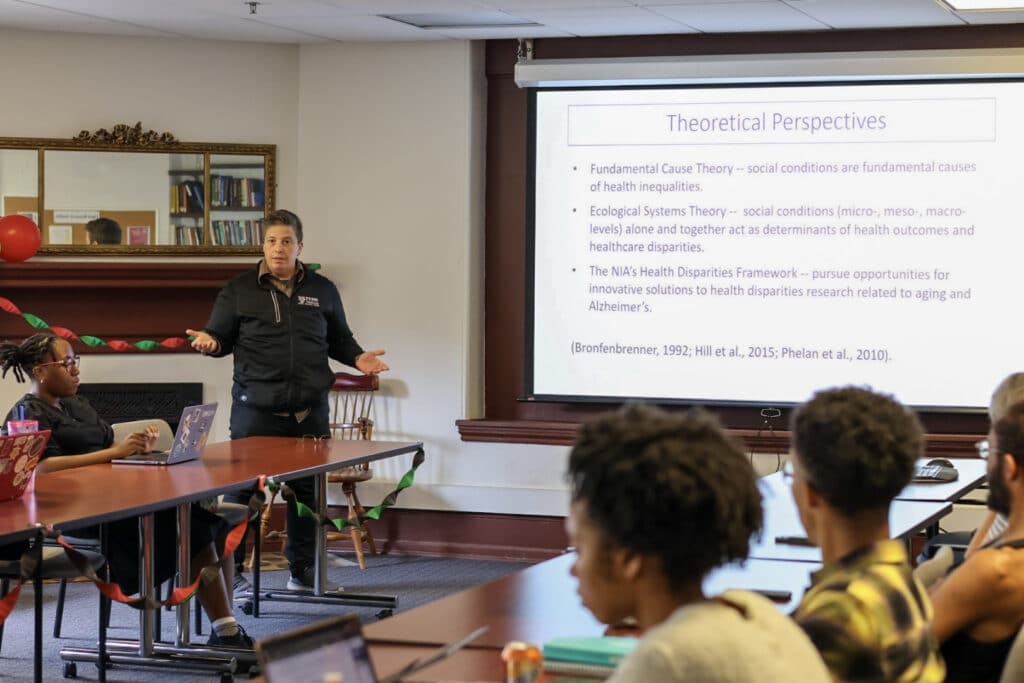
Kezia Odamtten, CrystalJade Johnson, Devin Davison, Aisha Johnson, Kahina Dostaly, Jamila Zablah
By Jake Johnson
The Penn Memory Center (PMC) recently completed the third year of its Summer Training in Aging Research (STAR) program. This year marked a particular success for the program, as the number of applicants PMC received more than doubled from 2022.
As with previous years, PMC chose just six applicants to participate in the 9-week program, pairing them with mentors in the field of aging research. The STAR internship offers a valuable opportunity for students to get hands-on experience in their area of interest.
The STAR program emphasizes diversity and inclusion in the field of aging research through its application process. All undergraduate and graduate students are invited to apply to the STAR internship, but the program highly encourages students from underrepresented groups to apply.
For STAR scholar and Kezia Odamtten, this emphasis on inclusion was a major motivator for her application.

Kezia Odamtten
“I stumbled across the STAR internship and seeing as its primary focus was uplifting immigrant voices, among other underrepresented groups, I felt drawn to it,” said Odamtten. “It prioritized helping people like me get insight into and connections in the medical field, and that seemed like an invaluable opportunity to not pass up.”
Odamtten, who is an immigrant herself, said that she has often felt that this part of her has held her back from opportunities. Even though the US is home to so many immigrants, she said that many of the internships and school programs she has applied for have not catered to immigrants.
“This was such a blessing to see and I am so grateful that it exists for people like me,” she said.
This intentionality in the program’s selection process is a part of an effort from PMC to address a lack of representation among clinicians and researchers in the field.

STAR interns receive lecture from PMC researcher Dr. Shana Stites
STAR scholars are exposed to the many pathways that exist within aging research, as they are paired with expert mentors based on their interests and career goals. From there, students’ experiences can vary greatly. While some may spend a majority of time in a lab, others may find themselves in a more clinical, patient-facing setting.
Odamtten was paired with Emma Rhodes, PhD, MA, at the Penn Frontotemporal Degeneration (FTD) Center, where she studied how emotions relate to FTD. Another STAR scholar, Jamila Zablah, generated datasets for David Irwin’s, MD, neuropathology team to train artificial intelligence to identify tau tangles in a specific part of the brain.
While students’ experiences in the program were unique, each formed strong connections with their respective teams as well as with one another.
“I got to make so many amazing connections for my future endeavors and it prepared me for the real world after graduation, equipping me with the tools necessary to excel anywhere I go,” said Zablah.